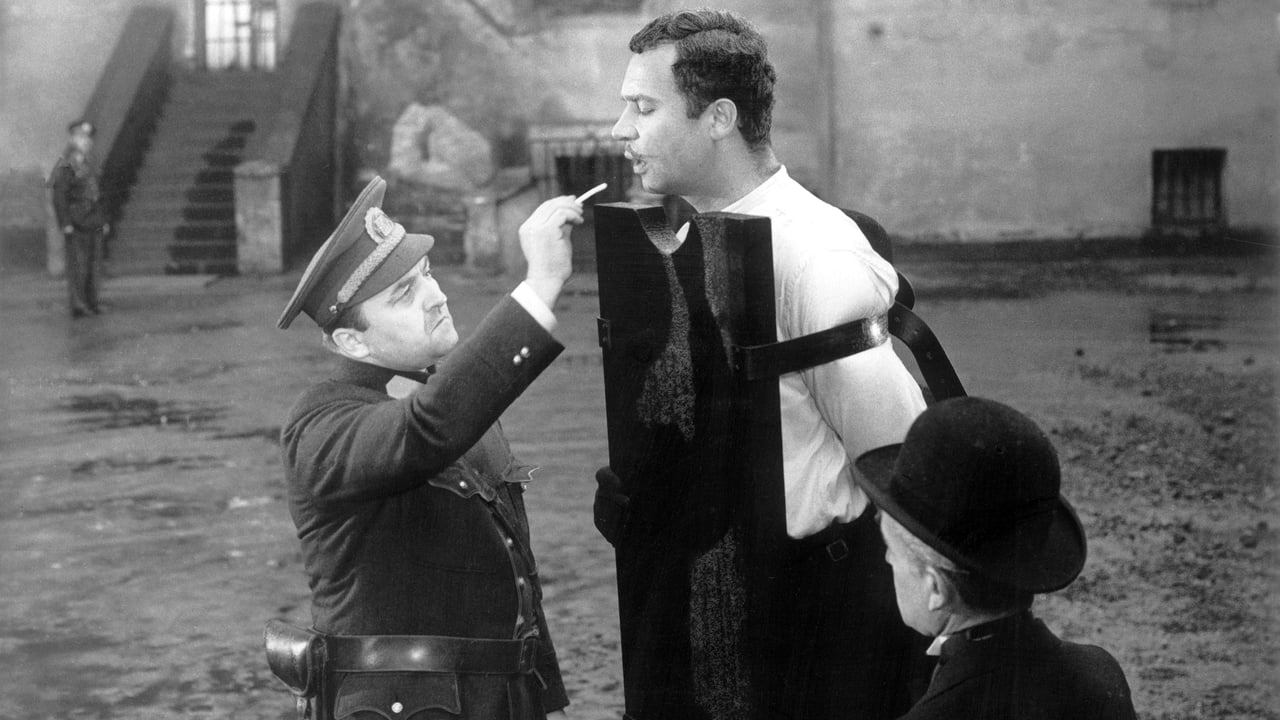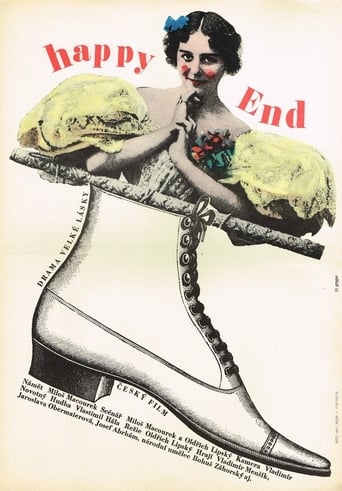

an ambitious but ultimately ineffective debut endeavor.
... View MoreIt’s fine. It's literally the definition of a fine movie. You’ve seen it before, you know every beat and outcome before the characters even do. Only question is how much escapism you’re looking for.
... View MoreClose shines in drama with strong language, adult themes.
... View MoreThis is a small, humorous movie in some ways, but it has a huge heart. What a nice experience.
... View More"On behalf of the republic, we cut your head!" That's how Dne Yppah (read it backwards) starts. And I thought I will see one of those parodies of the communist regime, typical for the Czech, Hungarian, Polish or Yugoslavian cinema of the '60s - 70s. In those former communist countries, you could have your head cut or hanged or shot if, for example, you dared to speak bad about the communist state statutes and politics. In Romania, before 1989, many jokes circulating were about the dictatorial regime. One of them said that if you tell political jokes, you can choose yourself a self-criticism, self-police-van or a self-autopsy... In conclusion, this is not an awakening of the soul through spiritual knowledge. This is an unique, original film. Through sarcasm, Oldrich Lipský, who offered us also the western parody Lemonade Joe(1964), now makes us complicit with this Happy End (1967), a total parody of life, including birth, love, wedding, death. But everything is lived opposite, that begins with the death (execution by guillotine) and ends with birth. All the actors are impeccable and the whole film, although spoken, has the air of a comedy from the silent era of Chaplin or Buster Keaton.
... View MoreIf you have seen the film you will have understood what you just read...OK, I won't make this post in reverse order even though that was the initial plan. Since in the film it is only justified because it works in both directions and I won't put the effort into my write-up for it to work both ways, it would be little more than annoying to make my comment mirror the film like this. 'Happy End' is a challenge to constantly read in both directions simultaneously, which should make rewatches worthwhile. Luckily the "actual narrative" (which is what I will call what we know the story of this man's real life is, as opposed to how the film presents it, which I will call the "fictional narrative"), is simple enough and at all times clear so that it isn't a necessity to try to follow the dialogues and the plot in reverse order, but it is certainly tempting to do so, and I think one sometimes wants to see the film in correct chronological order, because even though that would make it a lesser film, it would make one further appreciate all the planning that must have went into making it the way it is, for the result looks so effortless. This can be seen with the example of "Memento" of which a chronologically ordered version exists.OK, so what we have here is certainly a great premise. And cinematically it was cleverly solved with the filmmakers doing a very fine job, it would be difficult to argue otherwise. But is it more than just clever? Well, it's amusing. So, yes, it is. Why is it amusing? Because the dialogues, which in normal order drive the plot along but are rather banal, now presented in reverse order, are written in such a way - line after line - to create amusing conversations. Yes, that's one reason. And yes, even gestures often take on an amusingly fitting alternate meaning by reversing cause and effect. But why else does it cause amusement? It's because negative things become positive. Things getting worse become things getting better. And while the middle section of the film is a back and forth between things going well for our protagonist, and things going bad for him, the beginning and the end both are things getting gradually better for our protagonist in the fictional narrative.A cow gets slaughtered and skinned, and a woman gets hacked to pieces on screen, and we all laugh, because we see both creatures come to life before us, violence is turned into creation. This is what we witness, but at the same time we are also aware of the actual causality. The reality that is implied in "Happy End" where things keep getting better and better is that nothing ever gets better. From the moment we are born until we die everything only gets worse. Everything is falling apart. To live means to die. Slowly. (If you want to read more on this please see my comment on 'Irréversible': http://www.imdb.com/title/tt0290673/reviews-668 .)So the philosophy underlying all the fun shenanigans is a very bleak one indeed. Speaking of which, it is easy to also bring Nietzsche's concept of the eternal recurrence into this. The man is forced to relive his life exactly the same way he lived it, even if from a bit of a different "angle" this time. He builds his own narrative out of the life he already lived, and building a narrative is exactly what he is doing, because there would be countless narratives to build out of his reversed life, his fictional narrative is merely the interpretation he chooses. But does he really choose it or is he instead driven to build this one? Because if looked at closer his fictional narrative parallels his actual one, creating a sort of circular movement. The actual narrative, we can gather, is that the man is trapped in an unloving relationship until he falls in love with another woman and they get married. Soon he becomes a cuckold husband who kills his wife and her lover, goes to jail for it and gets executed. Now, in the fictional narrative he gains his freedom, gets to have a wife who is less interested in him than she is in another man, so he wants to kill him and then kill her, or at least return to her to her parents, to be with the woman he really loves.What I find telling in the fictional narrative is that he almost immediately wants to get rid of his wife, as if what she did to him in the actual narrative still is somewhere in his memory and he subconsciously hates her for it. Likewise, with his (actual) first wife(?) he has the urge to immediately skip to the paradise that is childhood. To live a life without worries, and still with all the hope of a bright future ahead of him. There can only be happiness where there is hope, or you can be happy by at least being oblivious to the fact that there is no hope. The reason why happiness can exist for our protagonist at the end of his fictional narrative is because unlike the certain death that awaits each and every one of us, his fictional narrative doesn't stop at the real end, he just has no memory of what lies beyond it, no memory of his birth and of his first few years being alive. In the direction of his fictional narrative there is no death, only oblivion. This review is best read in reverse order. Warning! Psych!
... View MoreI haven't laughed this hard at a film in so long. I had always been looking for this film, but forgot about it until I saw it on offer from an independent company. It really does run 100% in reverse. Dialogue is mouthed backwards, tears run upwards - everything. The story line is a stroke of genius though. Forwards, it might have made a nice, if dull, murder mystery, but played in reverse it becomes a different story entirely - and almost conceivable. The copy I bought had very questionable subtitles, which only brought on more laughter, but it was still easy to understand. Why this never had its day is beyond me - bring it back!
... View MoreThis film will really make you think different.The story is about a husband who kills his wife, but it's not important.The great idea is something else: the WHOLE film was shot backwards. Even the dialogues are spoken backwards. (I guess it was quite hard, because the actors had to speak backwards and then they had to dub themselves. Sounds a bit complicated, doesn't it? =) So the film starts with the execution of the main character and it ends when he is born.This will turn your brain upside down! =)
... View More